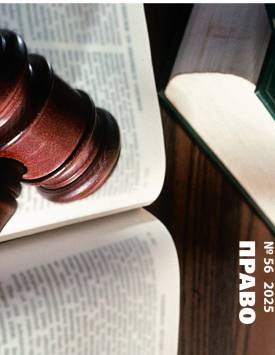Protecting the right to privacy in the age of digital communications
The purpose of this study is to identify the challenges and risks arising in the process of realizing the human right to privacy in the context of the development of the digital economy, updating the protection and defense of personal rights and developing appropriate proposals to improve the legislation. The empirical basis of the study was the norms of Russian legislation, law enforcement practice, as well as materials from foreign periodicals. The digital environment is increasingly absorbing all aspects of human society. The new reality creates certain challenges and risks for privacy, maintaining confidentiality and, in general, the inviolability of the individual. The law is faced with an important task - to establish and specify the limits of legal protection of privacy in the era of mass communications - free access to the creation, receipt and exchange of information. In the study, the author used the appropriate general scientific and special legal methods. The study of regulatory legal acts governing the relevant social relations was carried out using the formal legal method, which made it possible to identify the criteria for violating a person's privacy in the digital space, as well as the limits of the implementation and protection of the right to privacy in the modern society of mass Internet communications. The comparative legal method was used to compare the content of legal norms governing the implementation of the right to privacy. This method allowed us to identify emerging contradictions between the norms of Russian law and local corporate norms, simultaneously created by digital platforms when interacting with users. The hermeneutic method was used in the process of interpreting the norms of Russian legislation and clarifying the normative content of the right to privacy of an individual. General scientific methods (analysis and synthesis, abstraction, deduction and induction) were used in the work both separately and as part of other methods. The systemic research method allowed the author to identify some gaps in the normative regulation of the institution of protection of the right to privacy in the new realities of the increasing role of digital platforms and to propose options for filling them. The author comes to the conclusion that complete anonymity of an individual in the era of digital society is hardly achievable. At the same time, the digital profile of a person, the entire array of data that a person leaves on the Internet (banking transactions, purchases, health information, changes in geolocation, views and opinions on various issues), are an integral part of his private life and must be protected by law along with the personal data of a citizen and other intangible assets. In the era of digital communication and artificial intelligence, the law has a special mission, which is to establish and maintain a balance of interests of an individual, commercial organizations and the state while maintaining the global imperative for personal autonomy, privacy in the digital space. Including the right to confidentiality, anonymity outside critical infrastructure facilities. The author declares no conflicts of interests.
Keywords
personal secret, right to confidentiality, digital societyAuthors
| Name | Organization | |
| Skvoznikov Alexander N. | Togliatti State University | skvoznikov2003@mail.ru |
References

Protecting the right to privacy in the age of digital communications | Tomsk State University Journal of Law. 2025. № 56. DOI: 10.17223/22253513/56/4
